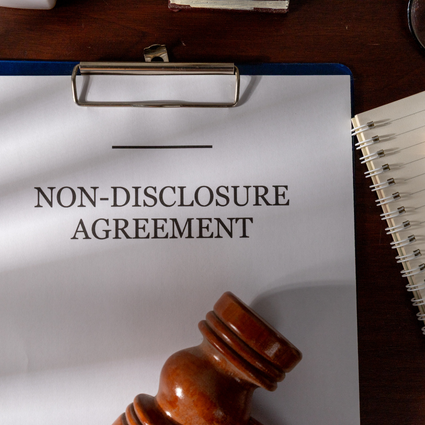Table of contents
De-mystifying the legal process and legal jargon
At Burch&Co, we speak to people like people.
It’s one of our values that we live by and pride ourselves on. This includes our clients and the way in which we communicate with them.
One of the ways in which we do this is by, as best we can, explaining legal issues, topics or processes in plain language. We don’t do this because we think we’re any smarter than our clients – in fact, many of our clients are sophisticated leaders in their industry – we do this to ensure our clients have a clear understanding of the advice we provide and don’t feel intimidated or daunted by the legal process. We also hope that it means our clients can enjoy interacting with their lawyer (us!).
Sometimes though, it is unavoidable to use legal terms and phrases that aren’t used in everyday life. This can particularly be the case when we are explaining the different steps in litigation or another legal process.
If you’ve ever wondered about the meaning of a legal term or phrase you’ve heard a lawyer use or just want to polish up your legal vocabulary, we have provided a glossary below to help de-mystify the legal process and some of the (unavoidable) legal jargon that comes with it.
Cause of action
The legal ground(s) or basis on which you can sue someone. For example, breach of contract.
Consent orders
An order of the court that has been made by agreement or consent between the parties to a court proceeding. Often consent orders will be made to avoid the parties having to go to a directions hearing (see below).
Counterclaim
A document that you file with the court (and is usually included in your defence) that sets out a cause of action against someone who has brought a court proceeding against you already.
Creditor
A person or company that is owed money.
Damages
An order from the court for money to be paid to you, to compensate you for loss you have suffered.
Debtor
A person or company that owes money.
Deed
A formal legal document.
Deed of Settlement
A formal legal document that parties to a court proceeding sign to bring an end to their dispute. A Deed of Settlement can include any terms the parties agree to include, but generally it will involve the payment of a sum of money in exchange for the court proceeding to be brought to an end.
Defence
A document that sets out your response to a Statement of Claim that has been filed against you.
Directions hearing
A form of hearing between a judge and the lawyers to decide what steps are required in a court proceeding and when the steps will be taken.
Discovery
The process each party in a court proceeding must go through to provide each other all documents that are relevant to the dispute.
Enforcement
The process of making someone act in accordance with an order from the court or some other law or rule. For example, enforcement of a court order directing someone to pay you money.
Injunction
An order from a court that says that someone must do, or not do, something.
Judgement
A decision of a court in a proceeding, in particular the written reasons the judge(s) provides for the decision. See also judgment order.
Judgment order or debt
A court order for someone to pay you a certain amount of money, which can be legally enforced in different ways.
Litigation
Any court proceeding that involves a civil dispute rather than a criminal matter.
Mediation
A confidential process between parties in a dispute involving an independent person helping them come to an agreement to resolve their dispute. A mediation can either be organised privately by parties in a dispute or the court may order that the parties go to mediation before a final hearing or trial.
Orders
An order of the court. See also consent orders.
Particulars
The specific details of any relevant facts or evidence that prove any claims, allegations or statements in a pleading (a Statement of Claim or Defence, for example).
Sometimes, parties may request ‘further and better particulars’ of certain aspects of the other party’s pleadings because they may not have enough information for that party to understand the claim, allegation or statement being made.
Pleadings
The formal written documents that each party has filed with the court in a proceeding which sets out their legal position.Every court proceeding will have a Statement of Claim (or other way of describing the first document that is filed to start the proceeding) and a Defence but pleadings also include a Reply (a document filed by a plaintiff that responds to a Defence) and any Further and Better Particulars (see Particulars (Further and Better)).
Proceedings
A court case.
Prospects
The chances of a particular cause of action being successful. Bringing a court proceeding can be somewhat complex and uncertain (and we don’t advise it in a lot cases) so it’s not generally possible to provide a percentage figure on your likelihood of success. Usually, we will give you advice on your prospects which includes the strengths and weaknesses of your legal position to allow you to make an informed assessment on whether issuing court proceedings will be a worthwhile and commercial investment.
Quantum
Simply, the amount of your claim.
Service
Formal delivery of documents, in particular court documents on another party. Sometimes, the rules of the court require that a court document be served on someone personally – that is, physically handed to them.
Statement of Claim
A document that you file with the court to start a legal proceeding. The Statement of Claim will set out the cause of action (see above).
Subpoena
A court order telling someone that they must provide certain documents or appear in court to provide evidence. A subpoena is only issued to someone who is not already a party to a court proceeding.
Substantiate
Backing up a claim or statement with proof or evidence.
Trial
A final hearing in a court proceeding where all parties will argue their case and the court will make a decision (although usually not until after the trial).









